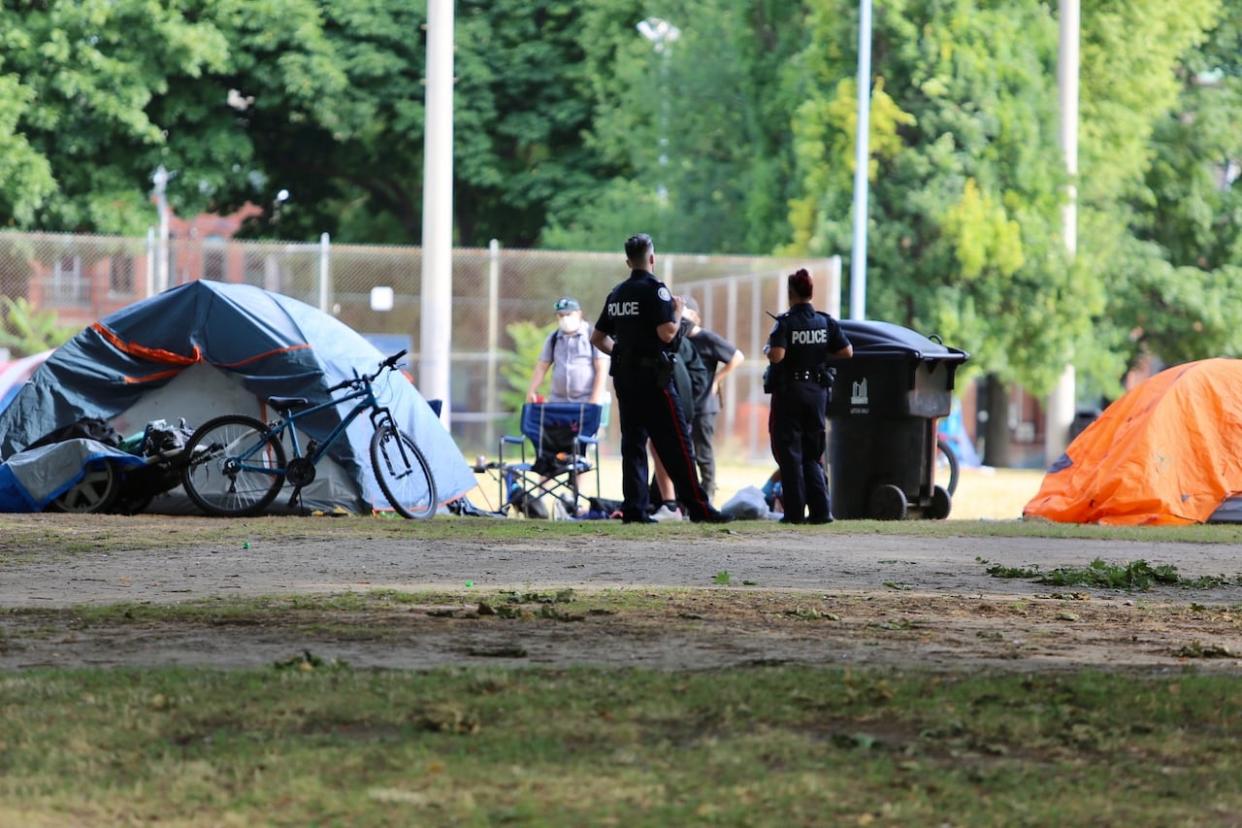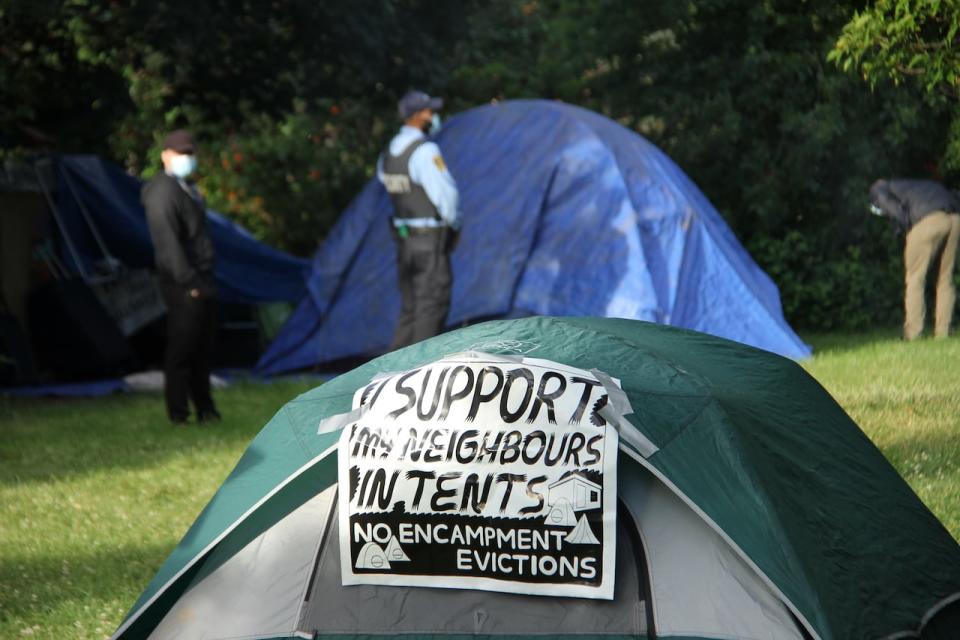Report signals shift in Toronto's approach to homeless encampments

The City of Toronto says it's updating its approach to homeless encampments to make it easier for people to get shelter indoors as the housing affordability crisis drags on, but some say more needs to be done for the growing number of people living in tents.
On Wednesday city staff released a report that, if passed by council, would mark a shift in the city's approach to encampments, from enforcement to outreach and support.
"We know we have to make housing a priority as we work to address the root causes of homelessness," said Gordon Tanner, general manager of Toronto Shelter and Support Services, at a news conference on Wednesday.
As of May 5, Tanner said the city had identified 256 encampments on city-owned property.
Everyone living in those encampments is a constituent, Coun. Alejandra Bravo, who chairs the city's economic and community development committee, told reporters Wednesday. As such, she said, the city has a responsibility to serve them.
"The City of Toronto has committed to progressively realizing the right to housing and has an obligation to treat people living in encampments with care and compassion," she said.
In the report, city staff say they are working to lower barriers for people seeking indoor shelter, trying to improve safety in those shelters based on recommendations from the Centre for Addiction and Mental Health and continuing efforts to increase permanent housing options.
In a news release accompanying the report, the city says it's also looking to other jurisdictions to secure more provincial and federal funding to shelter the influx of immigrants that have come to Toronto in recent years.
Report doesn't go far enough: outreach worker
The report comes nearly three years after the city forcibly removed encampments from parks like Trinity Bellwoods. An investigation into those clearings found the city acted with "significant unfairness" as there was no urgent need to remove tents at the time.
That investigation recommended 31 actions the city should take on homelessness. Tanner said Wednesday that 28 have been completed.

Police cleared out a homeless encampments in public areas like Trinity Bellwoods Park back in 2021, which led to an investigation and several ombudsman recommendations. The city's new report aims to move away from enforcement. (Patrick Morrell/CBC)
But the report doesn't take the clearing of tent encampments off the table. Instead, it requires that the city provide 72 hours notice before doing so. However, the report says the city would not have to give notice if "public safety or health and safety concern requires immediate action."
Outreach worker Greg Cook says the report doesn't outline how to help people in their current situation living in encampments.
"There's nothing that will bring people's rents down, which is what is needed," Cook said. "The protocol doesn't address that substantially."
Cook says transitioning people out of tents long term isn't possible for most people in encampments right now because of rising living costs, so the city should be working more to provide food, water and supports that will help those living in encampments.
"Frankly, the situation will keep getting worse and worse because more and more people will be getting unhoused because the cost of rent keeps going up," he said.
The report will go to the city's economic and community development committee for a vote next week.

